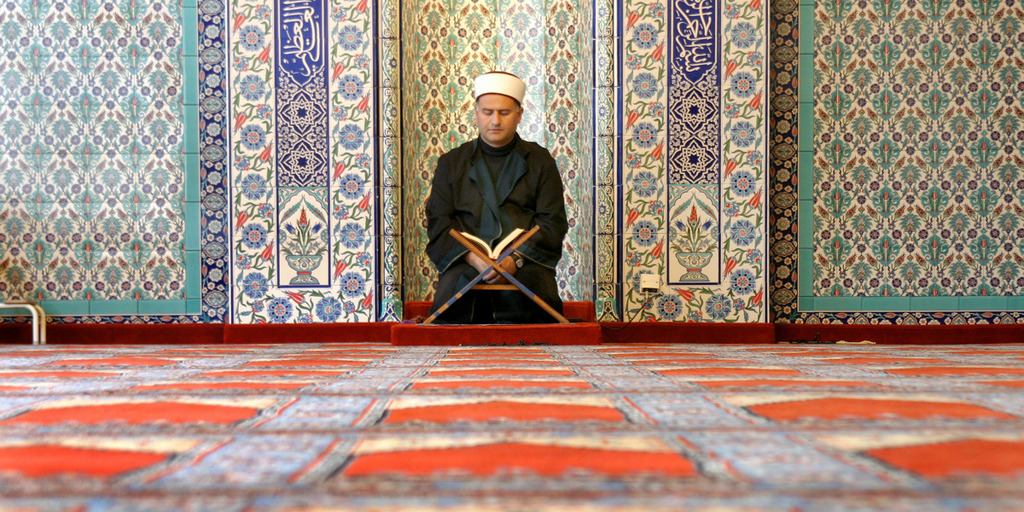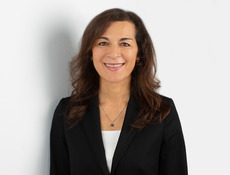Gütersloh – January 8, 2015. Most of the four million Muslims living in Germany are part of the country’s social fabric. Their attitudes and viewpoints very much reflect the Federal Republic’s basic values, such as a belief in democracy and diversity. On the other hand, many of the country’s non-Muslims have unfavorable views of Islam and its adherents. Those are just some of the findings from a special study on Muslims in Germany carried out as part of the Bertelsmann Stiftung’s Religion Monitor project. The study shows that Muslims in Germany have close ties to the state and society. For example, 90 percent of highly religious Muslims are very supportive of democracy as a form of government. Nine out of ten of the study’s respondents, moreover, have contact with non-Muslims in their free time. One in two even has as at least as much contact with non-Muslims as with Muslims.
The majority of Muslims in Germany are devout and open-minded at the same time. The study shows that 63 percent of those adherents of Islam who consider themselves fairly or very religious say they re-examine their religious attitudes at regular intervals. Roughly 60 percent of those respondents say they support same-sex marriage, something that also applies to 40 percent of highly religious Muslims who say they rarely look at their religious principles. In Turkey, in contrast, the country of origin for most of Germany’s Muslims, only one-third of highly religious Muslims say they regularly re-examine their religious beliefs. Only 12 percent of highly religious Muslims in Turkey say they are in favor of same-sex marriage.

Thomas Kunsch
Muslims in Germany have close ties to society and state
The attitudes and lifestyles of Muslims living in Germany very much reflect the social values prevalent in the Federal Republic, a fact little recognized by the general population. Most Germans are becoming increasingly averse to Islam. The result is exclusion and hardship for the country’s Muslims.
Content
"Muslims now consider Germany home."
Yasemin El-Menouar, Islam expert at the Bertelsmann Stiftung
The fact that Muslims in Germany feel a connection to the country and its values is not, however, helping overcome the negative attitudes others have towards Islam – on the contrary. According to a representative survey recently carried out on behalf of the Bertelsmann Stiftung, 57 percent of Germany’s non-Muslims perceive Islam as a threat. Only 53 percent felt that way 2012. “Muslims now consider Germany home,” says Yasemin El-Menouar, Islam expert at the Bertelsmann Stiftung. “However, they find themselves confronted with a negative image that apparently prevails because of a minority of radical Islamists.”
Overall, 61 percent of Germans say that Islam is not compatible with life in the western world. In 2012, 52 percent expressed that view. In addition, 40 percent say they do not feel at home in their own country because of the country’s purported Islamization. One-quarter feel that Germany should no longer permit Muslims to immigrate.
These attitudes are not limited to the margins of German society. Neither political orientation, educational level nor social status has a significant effect on what Germans think of Islam. The more crucial factors are age and personal contact with Muslims.
Of those respondents over the age of 54, 61 percent feel threatened by Islam. Of those younger than 25, only 39 percent express the same view. Fear is also greatest in those areas where few Muslims live. In the state of North Rhine–Westphalia, for example, home to one-third of Germany’s Muslims, 46 percent of the respondents say they feel threatened. In Thuringia and Saxony, home to relatively few Muslims, 70 percent feel threatened. Even though the vast majority of Germans – 85 percent – say they are very tolerant of other religions, this seems not to be the case when it comes to Islam.
According to El-Menouar, despite the fact that Germany’s various religious communities are increasingly living together in harmony, the danger exists that a large part of the population is becoming more intolerant of Islam. “Muslims and non-Muslims in Germany have a lot in common,” she says. “That could serve as the basis for feeling ‘we’re in this together.’ For that to happen, however, more people will have to recognize and respect Muslims and their religion.”
About the study:
The Bertelsmann Stiftung’s Religion Monitor examines how religion influences social cohesion in religiously and culturally diverse societies. Its findings are based on representative surveys carried out at regular intervals in selected countries around the world. On behalf of the Bertelsmann Stiftung, five researchers analyzed data from the 2013 Religion Monitor to better understand the attitudes of Muslims living in Germany. The study’s authors are Prof. Dirk Halm and Dr. Martina Sauer of the Center for Turkish Studies and Integration Research (ZfTI), Prof. Kai Hafez and Sabrina Schmidt of the University of Erfurt and Prof. Richard Traunmüller of the University of Frankfurt. In order to compare the data from 2013 to attitudes today, research institute TNS Emnid conducted a follow-up survey on behalf of the Bertelsmann Stiftung at the end of November 2014 to assess how Germans currently feel about Islam.




